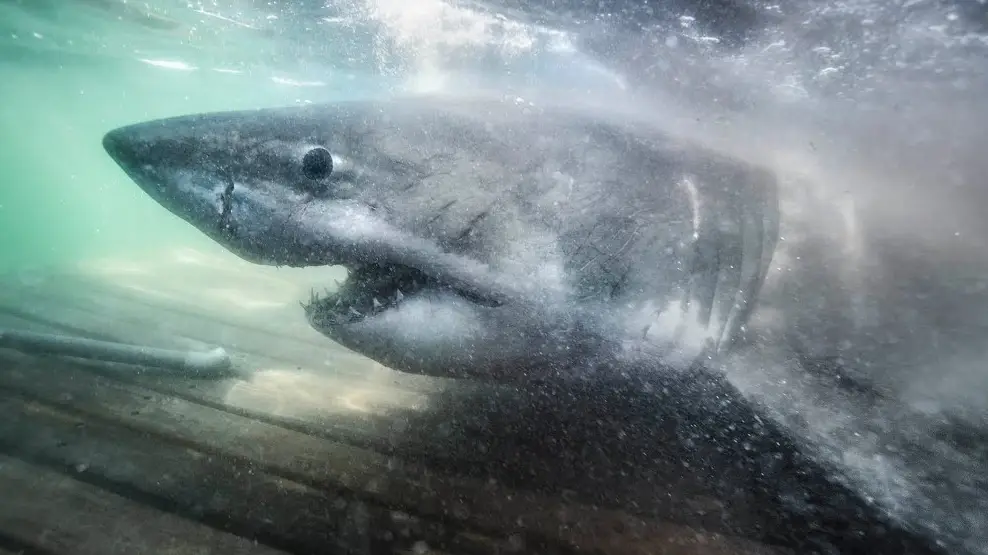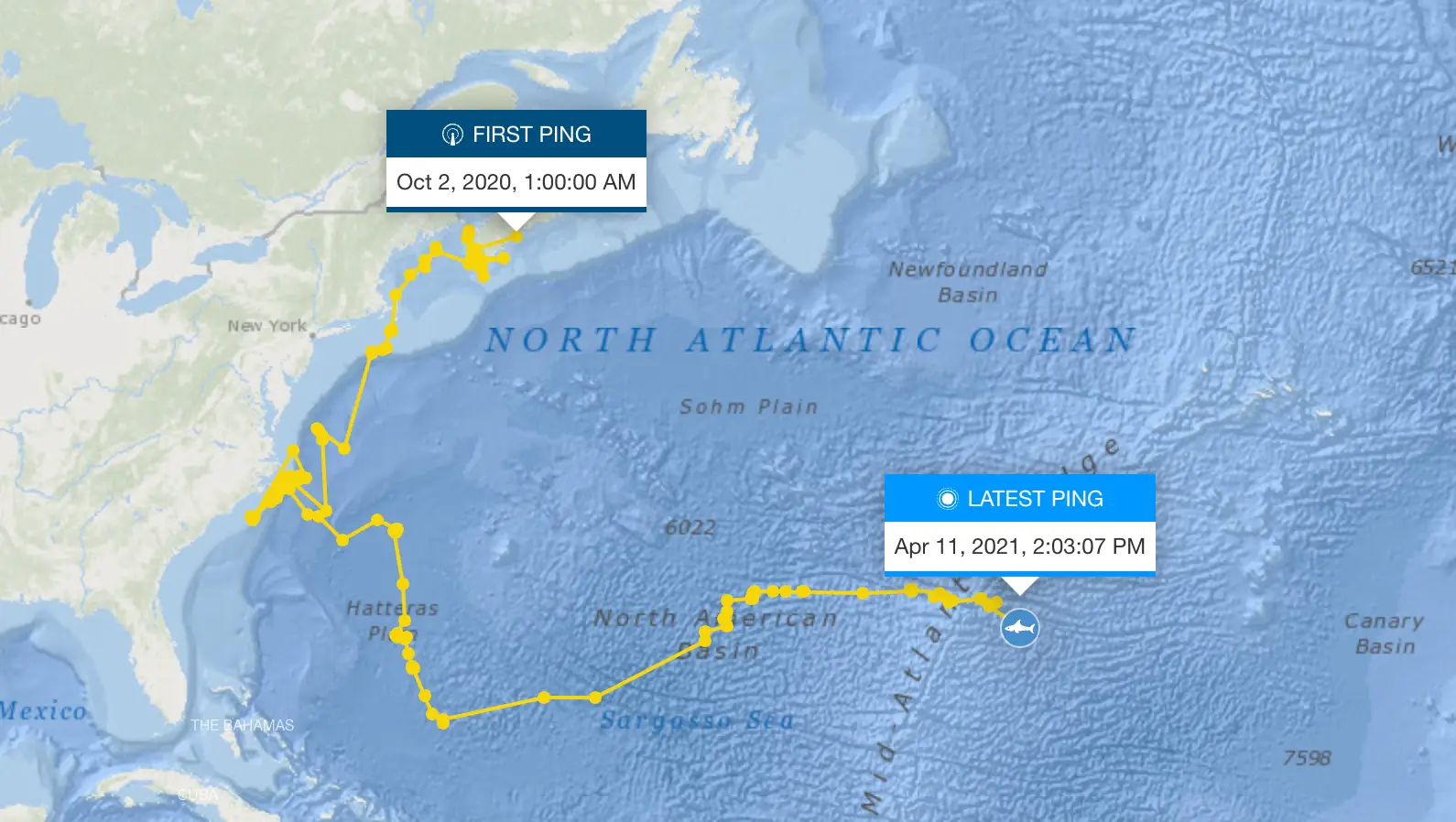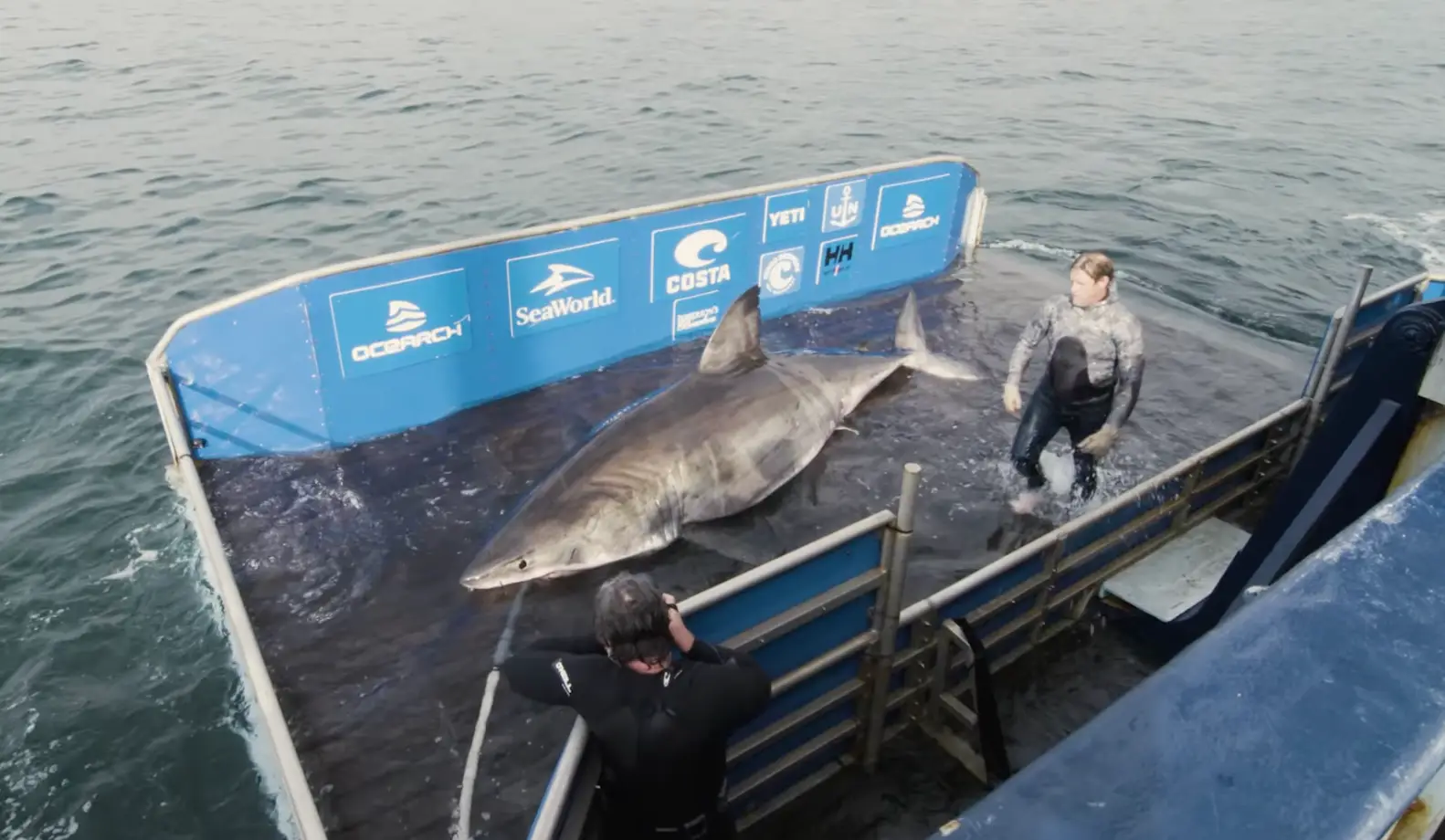
A great white shark that was tracked heading furthest across the Atlantic has completely disappeared since.
Nukumi is an estimated 17 ft 2-inch shark said to weigh in at a whopping 3,541lbs.
But while scientists were tagging her movements thanks to their tags, she hadn’t ‘pinged’ in a location for nearly exactly four years, since 11 October 2021.
The shark's first ping came just about a year before, on 2 October 2020, after she was tagged in Lunenburg, Nova Scotia. She was tracked covering 5,635 miles as she pinged far in the mid-Atlantic Ridge, having travelled towards Africa.
Advert
Researchers named Nukumi after the legendary wise grandma figure of the Native American Mi’kmaq people. They hoped that with tagging, the data they collected would mean the shark would ‘share her wisdom for years to come’.

OCEARCH said they planned to learn from the ‘wise guardian of our ocean’s eco-system’ as Nukumi helps balance fish stocks in the surrounding waters.
However, she has essentially disappeared from their system, given her last ping on its Global Shark Tracker in 2021.
LADbible reached out to the shark researchers and trackers to see just why she may have gone off-grid.
OCEARCH explained that after her last SPOT (Smart Position and Temperature tag) ping on 11 April 2021, Nukumi’s Pop-up Satellite Archival Transmitting (PSAT) tag showed that she travelled north, where the tag detached and began reporting from east of Newfoundland.
The adult shark was tagged with three types of tags: SPOT tag, PSAT tag and an acoustic tag that the team surgically implanted.
The latter was detected in late May 2021, not far from when she was originally tagged, and then again in June 2021 in Passamaquoddy Bay.

“Since her last SPOT ping, we’ve received 254 acoustic detections, but the last one was in June 2021. Acoustic detections only come in when our researchers download data, so there can be delays,” the team explained.
They continued that it’s unlikely the SPOT pings stopped due to battery life, as it is supposed to last around five years.
However, they add: “The tag likely failed—maybe the antenna was damaged, or biofouling (like algae) built up on the sensor, stopping it from transmitting properly.”
The life expectancy of a great white shark is estimated to be as long as 70 years or more, and it has only one recorded natural predator: the killer whale (orcas).
Topics: Sharks, Animals, Technology